What is Emotional Eating?

Emotional eating is eating as a way to suppress or soothe negative emotions, such as stress, anger, fear, boredom, sadness, and loneliness.
During the holiday season, these feelings are more pronounced as we begin the stress of preparing for the holidays, shopping, cooking, preparing for family and friends to visit.
If you are alone, the holidays can be devastating. The fear of facing another holiday alone, sitting in a small room eating a frozen dinner, or worse fast-food take-out, watching people celebrating and laughing and sharing, and all the things you are missing. This will lead to lots of emotional eating.
Major life events or, more commonly, the hassles of daily life can trigger negative emotions that lead to emotional eating and disrupt your weight-loss efforts
Emotional eating can sabotage your weight-loss efforts. It often leads to eating too much, especially high-calorie, sweet and fatty foods, and salt. The good news is that if you’re prone to emotional eating, you can take steps to regain control of your eating habits and get back on track with your weight-loss goals.

We understand that our emotions are difficult to deal with and with the holidays upon us, our emotions can be even more difficult to deal with. We live in a fast-paced
Stress-induced world. We are always working to catch up. With prices steadily climbing, it’s difficult to have extra money for ourselves, much less our families.
We tend to work very long hours plus travel time to and from work. We spend an awful amount of time away from the people we love and care about, and this can cause us to begin emotional eating without being aware we are doing this, especially when we’re riding an emotional roller coaster. How do we break the cycles that cause us to pack on the pounds while contributing to our poor coping mechanisms?

We’re not perfect, and there are times we eat out of emotion. However, the problem occurs when you turn to food to cope. When your weight becomes negatively affected, your entire body begins to suffer.
Did you know that emotional eating has both psychological and physiological components? Stress or times of complete devastation can trigger these binge-eating episodes.
However, by developing appropriate coping strategies, you can conquer this bad habit and alleviate the urge to splurge. The best diet advice for weight loss any weight loss program could give you is to avoid those things that you cannot control. If you know that you are going to eat an entire bag of chocolate chip cookies, then you should never bring them into your home.
Learning To Avoid Certain Triggers

- Relationship conflict
- Work or other stressors
- Fatigue
- Financial pressures
- Health problems
Although some people eat less in the face of strong emotions, if you’re in emotional distress you might turn to impulsive or binge eating, quickly consuming whatever is convenient without enjoyment.
A typical scenario: Parents that work a full-time job, with many responsibilities in the home. They have young ones that demand their time, plus they have a job that needs them too. They feel pulled in 100 directions and don’t have any time for themselves.
These people may be suffering from many emotional issues that could cause them to eat emotionally. Many people are shocked to find that emotions are not the only things that can trigger you to overeat. Here are some other things to consider.
Emotional eating can be caused by many triggers, both physical and psychological. These triggers might include:
*Bad Habits

An article by DW, com states “Bad Food Choices are killing more people than tobacco! Deutsche Welle, or DW, is a German state-owned public international broadcaster.
This article states One in every five people across the globe dies of causes associated with a poor diet.
A new study published in the scientific journal “The Lancet” reports overconsumption of red and processed meats, salt, and sugar, and not enough fruit, vegetables and legumes are to blame for damaging our hearts and causing cancer. Our daily diet, researchers say, is a bigger killer than any other risk factor, including cigarette smoking.

Eleven million deaths globally in 2017 can be attributed to cardiovascular disease, which is often caused or made worse by obesity and poor diet particularly overconsumption of salt.
This is why you need the Diet Rite System. Diet Rite is more than a great weight loss program that offers techniques to make your diet healthier. Although we are the best weight loss program for women, and a great weight loss program for men, seniors, and children. Diet Rite is more than that.
We intend to break the bad food habits plaguing people. We intend to continue to speak and educate not only about weight loss but how our eating lifestyle affects every part of our health. Diet Rite states emphatically, “Our food choices are responsible for a lot of the ailments we suffer from.
The reason we are not aware of this is that it takes so much time for this debilitating effect to occur, that we can’t track the ailment to our food. We think we’re getting old and these aches and pains are supposed to happen. We’re getting old and we are supposed to gain weight
Sometimes, people develop bad habits without even realizing it. For instance, do you feel that your dinner is not complete unless you have cola? Maybe your mother told you that a nice big brownie was in order if you did something good like getting an “A” on your report card. Or, if you were upset, your grandmother may have offered milk and cookies to ease the pain. Those things that we hold dear as memories might have been the key to our bad eating behavior.
*Fatigue

According to Better Health, fatigue is a feeling of constant tiredness or weakness and can be physical, mental, or a combination of both. It can affect anyone, and most adults will experience fatigue at some point in their life.
Each year, around 1.5 million Australians see their doctor about fatigue. Fatigue is a symptom, not a condition. For many people, fatigue is caused by a combination of lifestyle, social, psychological, and general well-being issues rather than an underlying medical condition.
Fatigue can affect your mood, memory, concentration, decision-making, and emotional state. When suffering these effects your food choices suffer as well, often opting for more sugary foods for quick energy. This will lead to a crash and return to the state of fatigue.
If you are getting enough sleep, good nutrition, and exercising regularly but still find it hard to perform everyday activities, concentrate, or be motivated at your normal levels, you may be experiencing fatigue that needs further investigation. Read our article Healthy Diet Advice for More Energy to learn how to diet properly to gain more energy and combat fatigue.
*Boredom

We know how easy it is to eat when we are bored mindlessly. How many times have you been sitting at your desk and munching on potatoes chips or candy bars without even thinking of it?
Or sitting on the sofa the chomp away at some unhealthy snack to fill the time because what you are watching is just not that interesting?
Eating out of boredom is a big problem. Boredom is almost as big of a trigger as emotional stress.
The University of Limerick conducted a series of studies that indicate that “boredom leads to unhealthy eating, as it helps to distract from the unpleasant boredom experience.”
Certain foods are associated with feelings of enjoyment and celebration. There’s a reason we eat buttery popcorn at the movies and sugar-loaded cake and ice cream at birthday parties. By eating these “junk foods,” we’re attempting to evoke a feeling of reward that maximizes pleasure something that is commonly associated with emotional eating.
In addition to being tied to emotions, like sadness and anger, emotional eating is correlated to boredom, as well. This is because eating when bored serves as a coping mechanism. Snacking breaks up the monotony of our boredom, raising our levels of dopamine. We snack continuously because it makes us temporarily feel better, excited.
*Social Influences+

Happy foods, happy drinks, happy times, happy friends. Social influences can be a very difficult situation when encountered.
Social influence is the change in behavior that one person causes in another, intentionally or unintentionally, as a result of the way the changed person perceives themselves in relationship to the influencer, other people, and society in general.
Three areas of social influence are conformity, compliance, and obedience. When in an environment where the atmosphere is not in alignment with your healthy eating lifestyle, the results can be disastrous both on your body for eating foods you know you should avoid and mentally for allowing yourself to give in so easily. During the holidays, these influences are exponentially higher and require greater internal strength and support.
If you have friends or are in an environment that tends to be a bad food influence, then you may need to anticipate these events and restrict your activities or participation. When you have friends and family pushing you for pizza, drinks, and those gooey desserts, then it’s easy to overeat aimlessly. The best dieting advice we offer is to be vigilant and try to stay around people that respect your boundaries.
Ways To Cope

We want you to know that you can overcome your urge to splurge on foods that are not good for you. Diet Rite is here to help you.
The first step in taking control of the situation is to recognize your triggers and avoid them. The best way to keep track of your foods is by using a journal or app. (Diet Rite is developing an online journal to assist you).
We find that people who journal are less likely to overeat than those that have no idea how many calories and carbohydrates they have consumed. Also, you can keep track of the times that you are eating out of emotional needs based on real hunger. Stay tuned for the announcement of the Diet Rite Weight Tracker coming soon
Second, it’s essential to replace eating with something else. For instance, if you find yourself coming home from work and grabbing a bag of chips and the remote to relax, why not try reading a good book instead? There are lots of relaxing hobbies that can get your mind off food and help you to calm down after a tiring day. Why not incorporate yoga, meditation, or a simple exercise into your evenings?
Also, we encourage people to walk. There’s something about being in Mother Nature that seems to melt the cares of life away. As a bonus, walking burns calories. If you don’t have a dog, get a pet to take along on the walks. Some people get a few friends together and walk and talk about life. It’s quite therapeutic.
Counseling or support is a great outlet for those who overeat. A therapist has tips and tricks that can help you to break the cycle of emotional eating. We know it’s a lifelong habit that isn’t going to be broken overnight, but you can start by acknowledging the problem and working on a solution. If counseling is not for you, then a nutritionist or your family doctor may be able to help. By learning the causes of your overeating, replacing them with positive habits, then you can have a better relationship with food.
There Could Be Physical Reasons Why You Overeat
Did you know that your passion for overindulging in foods may be caused by a physical issue? When you are under stress, the body raises cortisol levels to combat the angst. Cortisol is known for increasing your appetite and causing cravings for sugary foods. We know there is no way to stop stress in your life, but you can develop coping skills to combat it. Getting your cortisol levels under control is imperative for your well-being.
The best dieting advice we can give you is to learn and understand the difference between emotional and physical hunger. When you’re hungry based on your emotions, it’s a sudden urge to eat that feels like you may pass out if you don’t eat now. However, physical hunger is not so immediate or severe.
Also, if you are craving specific foods, then you can guarantee that it’s an emotional need more than a physical one. We know that it’s going to be a process to get you where you need to be. The weight didn’t come on overnight, and it won’t go away overnight either. You’re on track, and soon you will learn to identify your triggers so that you can get your weight under control.

